Starting a business isn’t cheap – you’ve got to get your branding established, build a website, find a team to do the jobs that you don’t have time for, buy various forms of software, and so on. But, don’t despair! I’m giving you a list of online tools that won’t cost you a penny.
Tools for Project Management
A new business will require assistance managing its numerous initiatives and objectives, especially if it has a remote staff or needs team collaboration. Email isn’t the best method for this because it’s too solitary, and if members aren’t on the most recent message, it’s simple for them to unintentionally miss an update.
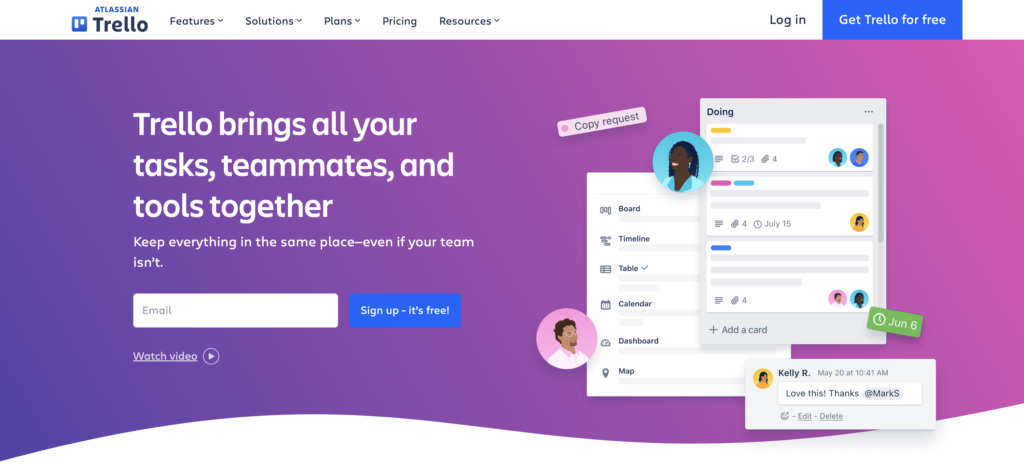
Platforms for project management like Trello are more effective. This cloud-based online tool enable everyone to track a project’s development from conception to conclusion and provide a complete and transparent view of where each major project is in its lifecycle.
Tools for Team Communication
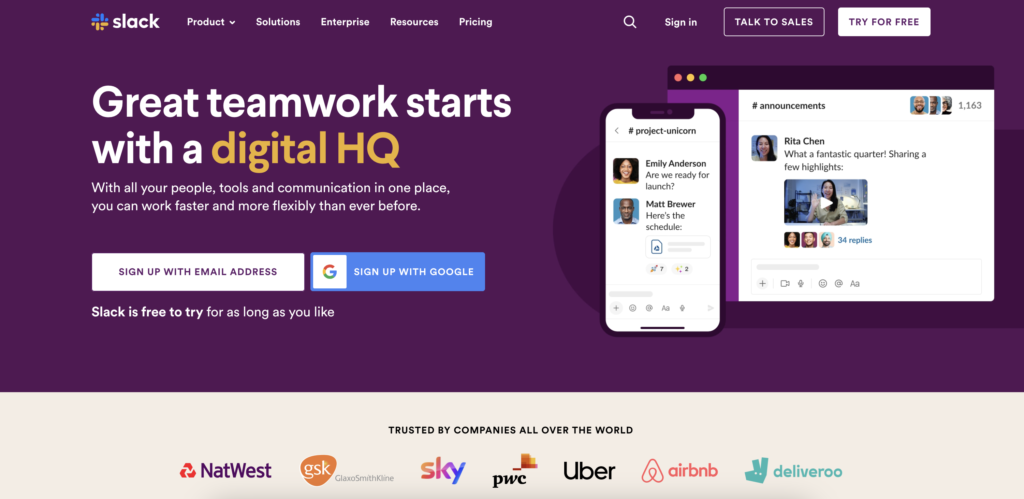
It can be challenging to monitor staff conversations, especially as your organisation expands. Utilise a communication service like Slack to enable teams to talk, share files, and integrate with other applications.
Tools for Digital Analysis
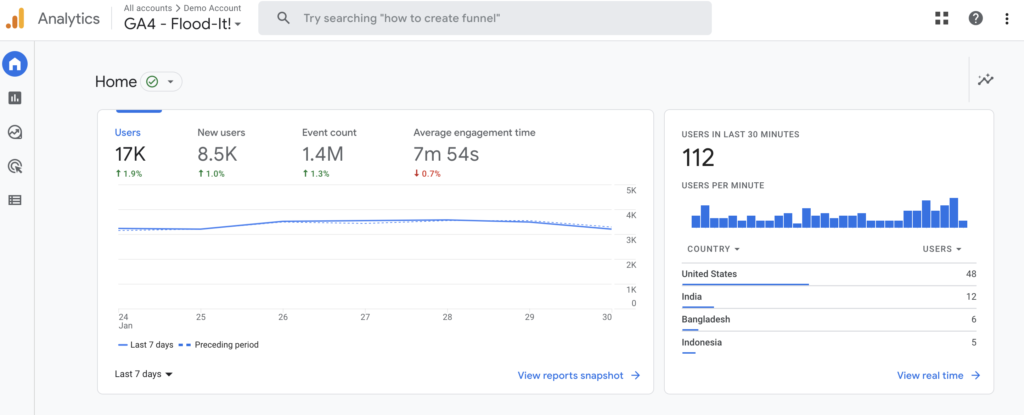
No matter how you design your website, you’ll need to know how users are interacting with it so you can make necessary adjustments and persuade them to take alternative actions. Track your visitors with a programme like Google Analytics to see if they’re “bouncing” (quickly leaving), which pages they’re clicking into, and other information you can use to improve performance.
Tools for Customer Relationship Management (CRM)
Your consumer connections shouldn’t be managed on the spot any longer. This too frequently results in lost or forgotten leads, or it makes loyal clients disappear. Your customer relationship management (or CRM) solution will enable you to log and track every facet of each relationship you develop, letting you know when to follow up with devoted clients or which individuals are browsing your website and filling out forms but not making a purchase.
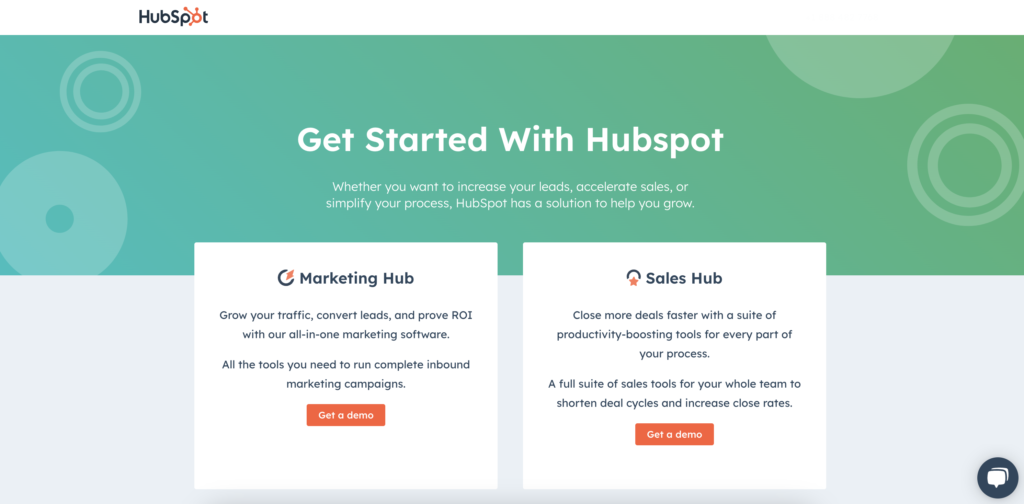
You can maintain internal organisation and remain top-of-mind with customers by using CRM software like HubSpot.
Tools for Email Marketing
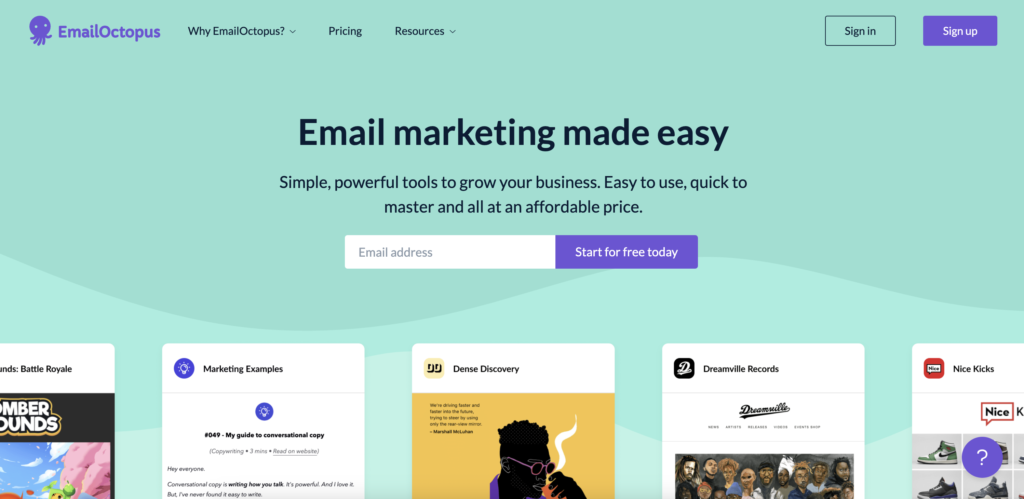
One of the most widely used and successful digital marketing strategies is email newsletters. Use an easy-to-use platform like my very own EmailOctopus (co-founder) to keep things simple. Find out who could be most interested in a follow-up message or offer, drill down and look at who opened your emails, what links they visited, and so on.
Tools for Social Media Scheduling
In addition to having a website, it is strongly advised that your startup have a presence on the major social media networks. This includes making posts, interacting with other users, replying to consumer inquiries and feedback, and being generally active to demonstrate your dedication to the site(s).

Use a management platform like Hootsuite to monitor feeds, schedule updates, interact and engage, and view analytics—all from an one dashboard—instead of checking your Facebook, Instagram, and Twitter sites constantly.
Tools for Data Storage
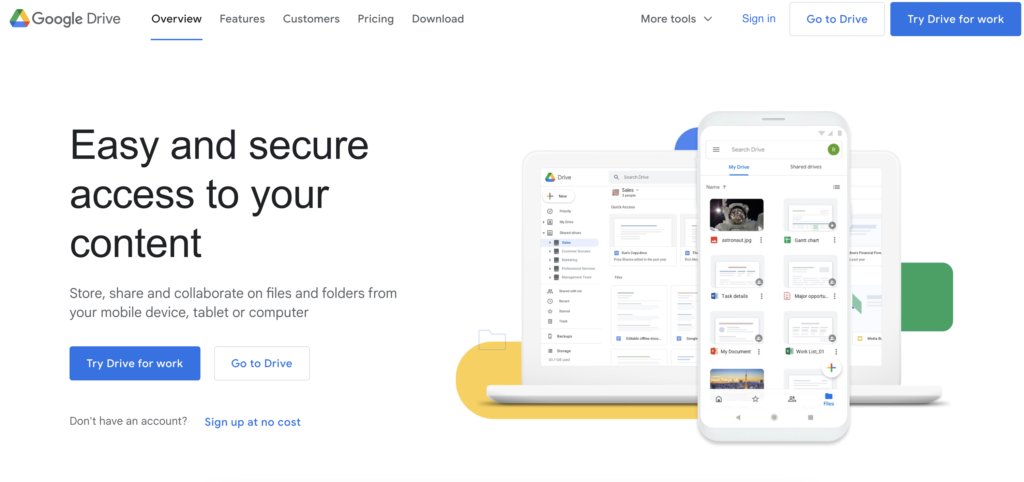
You should save all of your crucial documents “off-site,” preferably in the cloud, including your project files and company documents. Get storage from Google Drive or Dropbox to protect your backups, give users access from anywhere, and make quick changes to crucial data.
Tools for Data Security
Due to the increase in cyberattacks on small businesses, you should take action to protect your startup from phishers, hackers, and other cyber criminals. Even while using a public network, such as the free WiFi at coffee shops, a VPN enables users to establish a secure network connection. A VPN is a cost-effective approach to protect you, your staff, and your company if you anticipate working in public areas or gathering sensitive data from clients.
Tools for Video Conferencing

Need to communicate with a remote team? Want to meet with clients, potential coworkers, or consultants effectively? A multi-party video conferencing system that enables collaboration is essential. I tend to use Google Meet or Skype to get the job done.
Tools for Accounting Tasks
Another area of your company that may seem unimportant and uninteresting – until you’re subject to an HMRC investigation, or discover that your cash flow analysis did not take this month’s payroll costs into account!
Online accounting software, such as Xero, performs the duties of an accountant and bookkeeper by keeping track of your costs and revenues, resolving debts, generating invoices, producing expense claims, and pretty much anything else that has to be recorded on your tax returns.
I hope this helped!
A new business that lacks a variety of digital tools as I have detailed to connect remote users, automate and streamline procedures, and enhance operation will swiftly fall behind its rivals. These resources MUST be available if you want to manage a remote workforce. Investigate these digital tools early on to get things started off well; it will be simpler to scale up with them than to retrofit your tools to your current, potentially wasteful methods.




